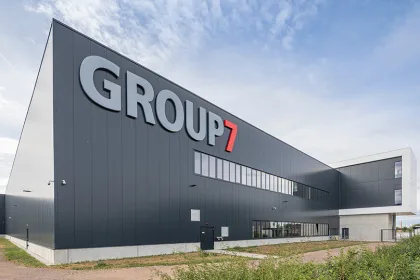Online marketplaces have grown to new heights in the past decade, with one the first websites in the history of online auctions, eBay leading the way since 1995.
Celebrating its 20th anniversary in September this year, eBay now has more than 25 million sellers and 157 million buyers, making it one of the biggest ecommerce companies in the world. Hundreds of thousands of these individuals are business owners who have utilised the platform as a marketplace for their goods. Moreover, according to a Company spokesperson, there are more than 2,000 millionaire sellers on the platform in the UK alone.
“Over the past 20 years, eBay has developed a completely unique website; an entirely different retail platform that has revolutionised the industry. It led the way forward for both online shopping and selling by showing how easy it could be,” said Robert Mead, Marketing Manager at Parcel2Go.com, a Company that specialises in helping eBay sellers to source cheaper alternatives for parcel delivery.
AuctionWeb
eBay started its life as an auction site created by computer programmer, Pierre Omidyar who launched AuctionWeb on Labour Weekend in 1995 as a site “dedicated to bringing together buyers and sellers in an honest and open marketplace”. Created as a platform to sell a broken laser pointer – which was subsequently bought by an individual who collected such items – the site offered users a new shopping paradigm that resembled a live auction experience and revolutionised the market, allowing ordinary people to buy and sell items at a discount.
After changing its name to eBay in 1997 – as Omidyar’s consulting group, Echo Bay Technology Group discovered that the ‘Echo Bay’ domain name was already taken – the Company quickly demonstrated its serious attitude to business, holding its own against rising competition from major ecommerce sites such as Amazon and Yahoo! Auctions. Inspired by eBay and these other first visionaries, many likeminded entrepreneurs also became keen to launch their own international businesses in the online space, utilising the new technologies at the time to capitalise on this emerging market.
“No longer a website just for people to auction second-hand items, eBay has evolved into a thriving online marketplace where everyone from large businesses to sole traders can sell their wares, and has even become a place where start-ups can find their footing amongst giant retailers,” added Mead.
The UK has proved to be the most lucrative market for eBay, with more than half of the small online retailers on the site taking advantage of international shipping options and exporting goods to four or more different countries. Consequently, the UK site has played a key part in enabling firms to become exporters without the costs and infrastructure that are usually required to trade internationally.
“We’re working hard to ignite the entrepreneurial spirit of small businesses by providing them with the tools and the flexibility to export millions of British goods abroad, despite lacking the infrastructure of a traditional exporter.
“Selling can be very easy to do on eBay and for many businesses, it’s changed their lives,” noted Sarah Calcott, eBay UK’s Director of Operations.
Convenient delivery
eBay has raised people’s expectations when it comes to delivery from an online retailer; rising to meet the needs of the emerging convenience-culture. Mead highlighted: “Many eBay sellers will often lower the valuation of their products in order to stand out from larger retailers, however this may result in them compensating with delivery charges, or at least offering cheaper and more expensive options depending on speed and the buyer’s preference.
“Some sellers may even rely on delivery charges as an extra small source of income in addition to their sales. And in order to ensure that these high standards of retail are maintained, there has been an influx of courier companies, dedicated to ensuring that parcels arrive quickly and in one piece.”
These new carriers are pioneering new forms of delivery, from PUDO (pick-up drop-off) shops to locker deliveries; all based around making the process as seamless and convenient as possible for the customer. As demand grows for faster delivery options, sellers on eBay will be expected to do more to ensure that delivery matches the high standards of the well-established competing retailers.
eBay has set the trend for a fully-flexible value chain stemming from the supplier to the consumer, revolutionising the selling process by simplifying delivery and invoicing, and implementing a review and feedback system that alerts the seller to the safe receipt of their parcel; giving both the business owner and customer more control.
PayPal split
For 14 years, eBay has been supported by its electronic payment arm, PayPal and in 2014, both companies announced their dramatic split in reaction to changing market demands and shareholder pressure, creating different strategic priorities for the two entities.
Having traded together since eBay bought PayPal in 2002, the payment Company has long been eBay’s fastest growing subsidiary, handling huge amounts of money for the site globally. While the two are now both individual Companies listed on the stock exchange, PayPal continues to be the main payment provider for eBay, with no expected change for its customers.
The main reasons dictating the split came down to how to form the right strategy to best compete with up-and-coming rivals such as Apple and Android Pay. With the landscape for online payments continuing to grow rapidly, PayPal hopes to find new focus in staying ahead in the mobile payments market.
Moreover, according to the Telegraph, parting ways was designed as a way to “unlock extra value overnight”, forcing investors to appraise them separately. “PayPal was valued at just US$1.5 billion when eBay bought the Company in 2002, but its steady growth over the past decade has catapulted that valuation to north of US$50 billion. This is a figure that is hardly reflected in eBay’s US$69 billion market capitalisation,” the Telegraph’s US Business Editor, Katherine Rushton said.
It is this point that forms arguably the best reason for the separation; they are both very different businesses that are now operating in very different markets, each with their own set of strategic priorities to remain competitive.
Reportedly, PayPal’s revenues are increasing at around twice that of eBay’s, with annual growth of 19 percent, compared with the online marketplace’s 10 percent. Rushton continued: “The carve-up will allow each business to focus on what is best for them, rather than best for the larger Group…Earlier this year, PayPal’s Co-Founder, Elon Musk and former Chief Executive Operating Officer, David Sacks – neither of whom remain in the business – predicted that PayPal could be worth more than US$100 billion if it were allowed to go it alone.”
Consolidation
From the recent data, it is clear that PayPal has outgrown its partner in quite a big way, with many market analysts expecting eBay to struggle without the support of PayPal. eBay too, is facing increasing competition from other online retailers, including Amazon, Etsy, Notonthehighstreet.com and other independent online boutiques all after a bigger piece of the ecommerce pie.
Mead concluded: “There is no denying that eBay has been a hugely influential player when it comes to the retail industry. It has given numerous independent sellers the chance to build a viable business by selling their wares across the world, accessing a market that they would never have been able to in the past, further contributing to the boom of the global ecommerce industry.”
Ultimately, if PayPal can look at new ways to innovate its business to stay ahead then so can eBay. Having been present in the market for the past 20 years, the organisation has the experience and trend-setting knowledge to create a winning strategy for the auction site; one that has been a springboard for the success of millions of other likeminded entrepreneurs.
































